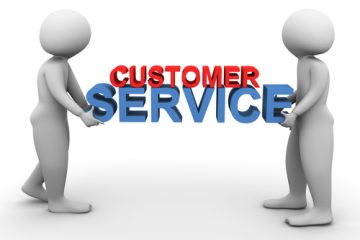Did you know that the total worldwide retail sales are estimated to reach $31.3 trillion by 2025? This shows how the retail industry continues to grow and evolve. It presents significant opportunities for small business owners.
Running a small retail business often comes with its unique challenges. One of the biggest hurdles is managing finances effectively. Understanding finance management can ensure its long-term viability.
This article will explore why effective financial management is crucial for retail business. We will also provide tips to track cash flow and boost profitability. Read on to learn more.
The Benefits
Managing finances effectively has several benefits. Here are some key advantages:
Improved Cash Flow
Effective financial management ensures a steady cash flow. This allows you to cover daily expenses and invest in growth opportunities. You can also avoid cash shortages that might disrupt operations.
A positive cash flow also allows you to take advantage of new business opportunities. It helps create a stable financial environment for your business.
Enhanced Budgeting and Forecasting
Effective financial management allows for accurate budgeting and forecasting. By analyzing past financial data, you can predict future income and expenses. This helps you allocate resources and plan for seasonal fluctuations in sales.
With a clear budget in place, you can monitor your spending and stay on track. Regularly updating your forecasts keeps you prepared for any unexpected changes.
Better Expense Control
Reviewing your financial statements can help you identify unnecessary or excessive spending. This insight allows you to make informed decisions about where to cut costs. Implementing cost-saving measures can improve your profit margins.
Tracking expenses also helps you stay within your budget and avoid overspending. Better expense control contributes to the financial health of your retail business.
Access to Financing
Good financial management improves your access to financing. Lenders and investors prefer businesses with well-organized financial records. This can make it easier to secure loans or investments for growth.
A solid financial track record helps you negotiate better terms with creditors. Access to financing allows you to seize opportunities for expansion and development.
Tax Compliance
Managing financials effectively ensures tax compliance for your business. Keeping accurate financial records simplifies the tax filing process. This helps you meet deadlines and avoid penalties or fines.
Organized records also make it easier to identify potential deductions. By maximizing deductions, you can reduce your tax liability. Staying compliant with tax regulations helps maintain your business’s financial health.
Adaptability to Market Changes
Effective financial management enhances your ability to adapt to market changes. It allows you to identify shifts in sales or consumer behavior. This insight allows you to adjust your strategies in response to new trends.
Having a solid financial foundation enables you to invest in changes without hesitation. This adaptability helps your retail business stay competitive in the marketplace.
Tips to Help You Enhance Your Financial Management
Managing finances is crucial for the sustainability of a retail business. Here are some valuable tips to help you enhance your financial management:
Track Your Cash Flow
Tracking your cash flow is essential for business success. It helps you understand the money coming in and going out of your business. This helps you identify trends and anticipate future cash needs.
Using accounting software or spreadsheets can simplify this process. These tools allow you to automate calculations and generate reports easily. They can help you make better financial decisions and stay on top of your cash flow.
Control Your Expenses
Expense management is at the heart of profitability. Start by differentiating between fixed and variable costs. Look for areas where you can cut back without sacrificing value.
For instance, negotiating with suppliers can yield better pricing. This can help you control your inventory costs.
You can also review subscription services and eliminate those that aren’t essential. Tracking your expenses enables you to stay within budget. It will also help you identify opportunities for savings.
Implement Pricing Strategies
Your pricing strategy can have a direct impact on your profitability. Review your pricing to ensure that it reflects the value you provide.
Consider employing psychological pricing tactics. You can do this by setting prices just below a round number. This can make your products appear more appealing to customers.
Also, conduct market research to help you understand competitor pricing and customer expectations. Reassessing your pricing strategy allows you to adapt to market changes. It also helps you maximize your revenue.
Seek Professional Financial Advice
For specialized guidance, consider hiring a qualified professional. A financial advisor can provide insights tailored to your specific business needs. They can help you create a comprehensive financial plan.
Additionally, professionals can assist with tax planning and compliance. This ensures you maximize deductions and minimize tax liabilities. They can also help you navigate complex financial decisions.
To help you with this, consider checking the CPA in Winnipeg. They offer expert assistance in managing your business finances. Their expertise can provide valuable support to help you achieve your financial goals.
Use Technology
Leveraging technology can simplify financial management. Cloud-based accounting systems allow real-time tracking of your finances. This enables you to make decisions based on current data.
Furthermore, automating invoicing and payroll can save time and reduce human error. This frees up your time and allows you to focus on growth strategies.
Additionally, many financial software options offer reporting features. They provide insights into your business performance. By utilizing technology, you can enhance accuracy and efficiency in your financial processes.
Establish a Financial Reserve
Creating a financial reserve can protect your business during unexpected downturns. This reserve acts as a safety net, providing cash flow when sales are low.
Aim to save at least three to six months’ worth of operating expenses. Regularly contribute to this reserve to ensure it remains intact. This financial cushion can help you weather economic challenges.
Small Retail Business: The Path to Financial Health
In the world of small retail businesses, effective financial management cannot be ignored. By using the tips above, you pave the way for sustainable growth.
Don’t hesitate to reach out for professional assistance if needed. Take charge of your financial health today to secure a stable future for your business.
If you enjoyed this article, then check out our other informative blogs. We have a wide variety of topics that will improve anyone’s knowledge base.




